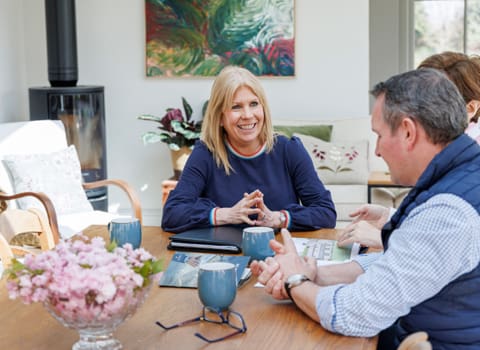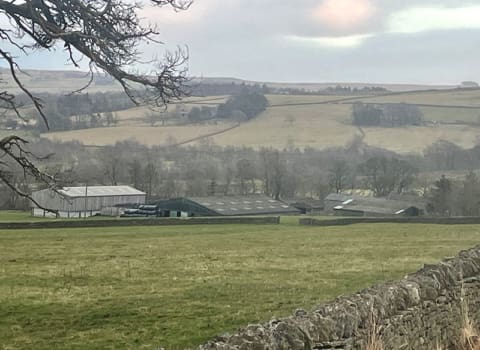Contact our offices
Main office
COLBURN
5 & 6 BAILEY COURT
COLBURN BUSINESS PARK
RICHMOND
NORTH YORKSHIRE
DL9 4QL
Estate Agency Offices are located in
BARNARD CASTLE, BOROUGHBRIDGE & RICHMOND
Residential Management Team
Our Offices
- Alnwick
01665 568310
Email Officealnwick@gscgrays.co.uk - Barnard Castle
01833 637000
Email Officebarnardcastle@gscgrays.co.uk - Boroughbridge
01423 590500
Email Officeboroughbridge@gscgrays.co.uk - Chester-Le-Street
0191 3039540
Email Officechester-le-street@gscgrays.co.uk - Colburn
01748 897630
Email Officecolburn@gscgrays.co.uk - Driffield
01377 337180
Email Officedriffield@gscgrays.co.uk - Hamsterley
01388 487000
Email Officehamsterley@gscgrays.co.uk - Hexham
01434 611565
Email Officehexham@gscgrays.co.uk - Kirkby Lonsdale
01524 880320
Email Officekirkbylonsdale@gscgrays.co.uk - Penrith
01768 597005
Email Officepenrith@gscgrays.co.uk

What do first time buyers need to know?
For first time buyers the prospect of buying a house is exciting and nerve wracking. It’s a time of discovery, and it helps to go into the process with some knowledge up your sleeve. Whilst some things may be obvious, other elements of buying a property may be less clear. In this first time buyers guide we cover useful things to know which will help you at every stage of the purchasing process.
Understand your financial position
When looking to buy a home you need to understand your current financial position and whether there are any steps you can take to improve it. There’s lots of advice online about improving your financial position when looking to buy your first home which is a good starting point, but you should also seek advice from a mortgage advisor who can provide more in depth advice for your individual circumstances to get you closer to making that jump onto the property ladder.
You also need to take into account what your finances are going to look like after you purchase a property to figure out realistically what is going to be a sustainable investment in the longer term. This goes beyond looking at whether you will be able to pay your monthly mortgage payments, but also all other costs you have such as car payments, utility bills, council tax, food and lifestyle.
Additional fees
People often think about saving up for their deposit and don’t realise that buying a house comes with a lot of other additional fees. You need to know what these are and factor this into your financial planning, such fees include stamp duty fees, legal fees, valuation and survey fees, transfer fees, mortgage arrangement fees and removal costs.
Mortgages
There are a range of different mortgages for which you could apply and it’s important to gain an understanding of the differences of each and which would work best for you. There’s an abundance of information about mortgages online but a good mortgage advisor can explain all this to you and provide answers to any questions or concerns you may have, as well as helping you determine which mortgages you would be approved for. Most mortgage advisors provide a free initial appointment.
What you need to check when viewing a property
Once you start looking at properties, remember to check for issues that may lower the value of the property which could give you either more negotiating power or make you lose interest in the home. Top things to look out for are, damp and mould, cracks in walls/ceiling or peeling walls, damage, water pressure, electrical or heating issues. It’s also worth checking what comes included such as furniture and white goods.
Valuations and Surveys
Surveys are not legally required, and it may be tempting to avoid getting one but they are extremely important to help you determine the true condition of a property which can help avoid getting caught out by what could be extremely costly issues down the line. There are three levels of RICS surveys including: condition reports, HomeBuyer reports and building surveys. For new builds there are also snagging surveys.
Valuations on the other hand will be required for your mortgage lender. Often the lender will arrange this but it is an additional cost you will be required to pay.
The role of a conveyancer
Once your offer on a property has been accepted you will need to instruct a solicitor or licensed conveyancer to deal with the legal formalities both prior to and post completion of the sale.
They will check the seller’s title, including lease if the property is a leasehold. Conveyancers will also carry out all necessary searches and check any rights or restrictions that may affect the property. They will check all necessary planning permissions and consents have been obtained and resolve any issues to ensure the title is as expected and marketable. As they normally act for your lender too, they will check your mortgage offer and deal with any mortgage conditions. They’ll report to you and arrange for you to sign any documentation. When all parties are ready your conveyancer will arrange exchange of contracts, which fixes the completion date.
Periods of silence
No-one ever seems to be prepared for the periods of silence they are going to face during the process of purchasing a property. It’s understandable when you’re eager to move into your new home and when you’re investing so much time and money into the process. But there may be periods of silence as different parts of the process are handled by all the parties involved, be aware that it’s going to happen and you’ll make it through the other side to successful home ownership.
Over the coming months, we’re going to be sharing more advice and tips to help inform, educate and guide you on all things to consider when buying your first home.
If you’re looking to move and would like to discuss options in the area, contact a member of our agency teams.

GSC Grays News
Residential Property Market: Recent Trends and Prospects for the year ahead
Read more







